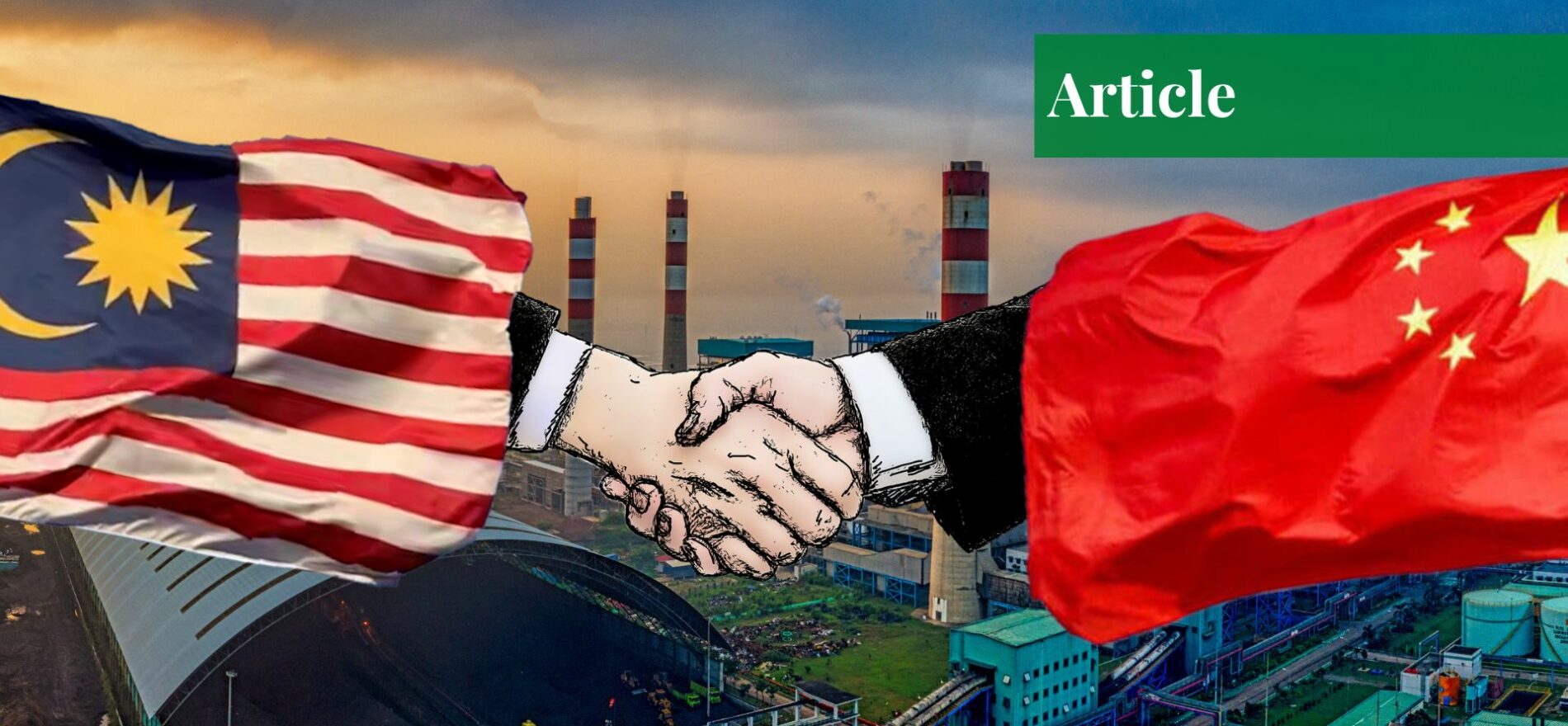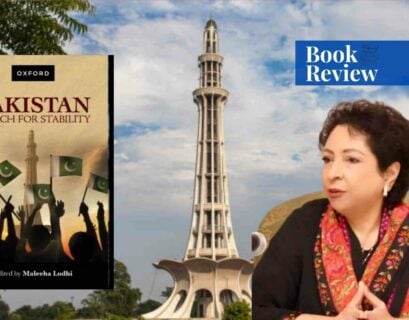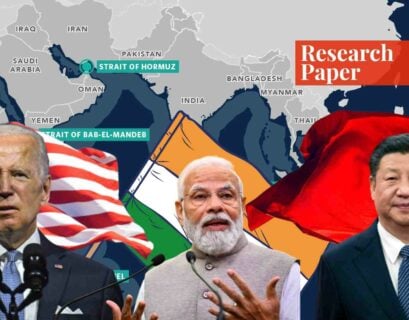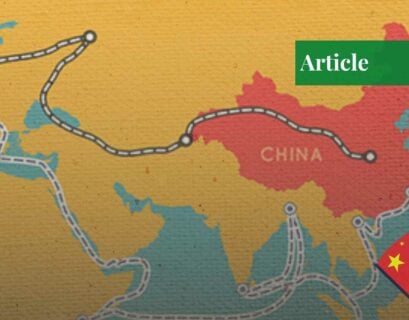Introduction
For Malaya (“Malaysia” after 1963), born during volatile international circumstances in the Southeast Asian region, China has always remained “the point of reference” throughout the past. The two countries share a disproportionate balance of power, a certain factor behind their mutual anxieties during the past few decades. Unquestionably, China’s role in the Southeast Asian region has been dominant, for each country, as an “unstoppable” regional power and emerging global power.
The Malaysia-China friendship was born slowly; in fact, the relations went through hard times during the Cold War era. Amid China’s economic and political rise after the 1990s, the relations changed their course from mutual suspicion to cordiality and partnership, making the reference cast on the positive side. Although the circumstances are pretty different now, China is still the reference point for the policymakers of Malaysia.
Malaysia’s Response to a Rising China
The scholarly and policy circles profoundly acknowledge China as a political, diplomatic, economic, and cultural player holding great decisive power in Asia-Pacific affairs for the last two decades. Most of the Southeast Asian states have been strong Western allies in the past, thus, they’ve shown reservations towards the Chinese role in the region.
As the founding member of ASEAN, Malaysia is significant not only for the organization but also for the entire region. Malaysia normalized its relations with China on May 31, 1974, becoming the first Southeast Asian country to take the initiative. Consequently, it holds immense scope for the ASEAN’s cooperation with China. The relations between Malaysia and China over the past twenty years are termed as the convergence of economic, bilateral, strategic, and geopolitical perspectives.
Malaysia no longer perceives China as a threat or a rival state to be contained. Rather, it has become its strong political, economic, and diplomatic alley owing to the convergence of its interests with China. Not just that, Malaysia also supported the Chinese stance on multipolar regional and international order to check unbridled US influence across the globe.
Power Asymmetry with China
Malaysia and China are, by any measure, asymmetrical. There is an immense gap between the two countries in terms of territory, population, and resources. The geographical area of China is 9.5 million square kilometers, while that of Malaysia is just 329,847 square kilometers. This power gap creates a disparity in terms of the economic and military capabilities of both countries.
Moreover, China has such an immutable hold over Malaysia that it can easily harm or help the Malaysian interests far more than any country (except for the USA, and the Soviet Union during the Cold War). In international relations, the size and strength of a country hold great importance. For the weak, the strong are both a source of apprehension and assistance.
Malaysia is in the extreme south of China which makes it highly exposed to the consequences of the Chinese actions. Existing so close to such a neighbor, Malaysia’s relations with China are multifaceted instead of being single-dimensional. Hostility with a powerful giant country would result in no benefit for Malaysia. Hence, it evolved its proximity into positive bilateral cordial ties amid such geographical closeness, thus, securing its national interests.
The Policy of Accommodation
All the former leaders of Malaysia from Mahathir Muhammad to Abdullah Ahmad Badawi to the present Najib Razak have prioritized engaging China on both bilateral and multilateral levels. Despite having territorial overlapping in the South China Sea, Malaysia has chosen to accommodate the rising power of China to gain commercial and geopolitical gains.
China was the first country outside the ASEAN where Abdullah Ahmad Badawi and Najib Razak paid their first visit, after coming to power in 2003 and 2009 respectively. During his key foreign policy speech, Prime Minister Najib Razak remarked, “the trip was made because our friendship with China is fundamental to our national interests and because there are too many lessons to be learned and shared between our countries.”
Historical Relations
Cold War Period
The Cold War was a bipolar security dilemma as described by conventional wisdom. But for the states of Southeast Asia, especially Malaysia and others, the Cold War was a tripolar conflict involving a clear and effective role of the People’s Republic of China. During much of the decades of the Cold War, the relations between Malaya and communist China were antagonistic.
The major source of anxiety was not just the ideological differences but also Mao Zedong’s policy of supporting the communist insurgencies in Southeast Asia, particularly Malaya’s Communist Party (MCP). As a result of that, the ruling elite of Malaysia started perceiving China as a threat to their internal stability and territorial security.
To contain this threat, the Malaysian elite started aligning their country with the Western powers. Malaysia pursued an anti-communist, particularly anti-China, policy by entering a pact with Britain in 1957 – known as the Anglo-Malayan Defence Agreement (AMDA). Furthermore, during the 1962 Sino-Indian War, Malaysia openly criticized the Chinese actions. The country also banned Chinese publications and restricted traveling to and from China amid the Konfrontasi (confrontation) of 1963 which ended in 1966.
Kuala Lumpur feared that Mao’s China and Sukarno’s Indonesia have forged a pact against tiny Malaysia as the target of the two countries’ expansionism. In addition to these tensions, the other major factor of mutual anxieties was the large ethnic Chinese population residing in Malaysia (almost 30 to 40 percent of the total population). Some nationalists of Malaysia even feared the possible assistance from these communities to China to serve Beijing’s interests.
AMDA got replaced by the Five Power Defence Agreement (FPDA), which included Britain, Australia, New Zealand, Singapore, and Malaysia when Britain announced the withdrawal of its forces from the east of the Suez by the mid of 1970. Under President Nixon’s Guam Doctrine of 1969, the US forces started reducing their ground troops in Southeast Asia.
In adjusting to the new realities that the British lion no longer had teeth, the Australian umbrella was leaking, and the American eagle was winging its way out of Asia, the Malaysian elite realized that they have to cope with their problems on their own. This compelled them to stress self-reliance and regionalism in their security planning.
Hence, Malaysia began moving away from being pro-western to regional neutralization and non-alignment under the leadership of Tun Abdul Razak. This necessitated Malaysia to reconcile with China, so it started rethinking its policies. The problem of asymmetry and proximity started solving.
However, the leaders from Razak through Hussein Onn to Mahathir Muhammad continued to view China with distrust throughout the 70s and 80s. Malaysia’s China policy since the 1970s has been motivated by a growing pragmatism of gaining economic benefits from the proximate giant’s huge market, setting the stage for a turnaround in Malaysia-China relations in the new era.
Post-Cold War Period
The story of the post-Cold War era is about how Malaysia managed to accommodate the giant neighbor economically to fulfill its interests. In explaining this logic of engagement to the US, former Malaysian Foreign Minister Abdullah Badawi commented, “Close relations and cooperation between Malaysia and China would alleviate any attempt by China to resort to military action because that would also be detrimental to China. If there is no cooperation, there is a possibility China may resort to military action (against Malaysia) or cause a conflict here because it will not lose anything. We want to create a choice (for China).”
Furthermore, political relations are going at their best. During Xi Jinping’s visit to Malaysia in October 2013, the two countries decided to elevate bilateral ties to “a comprehensive and strategic partnership.” Since 2009, China is Malaysia’s top trading partner and Malaysia is China’s largest partner inside ASEAN. The two countries also have educational and tourism links at the domestic level. Talking about past security concerns, Malaysia’s elite now hold a positive perspective of China.
Despite all these developments, Kuala Lumpur views China’s offensive capabilities and hegemonic intentions with suspicion. As a result of that, its post-Cold War China policy has been a dichotomous formula of apprehensive engagement. The two parties have political and strategic differences. The economic opportunities should be availed keeping in view the imperatives of security. This is reflected in the nomenclature chosen to describe the relationship with terms such as “cautious interchange,” “controlled relationship” and “counter-dominance” based on “hedged engagement.”
Acharya’s 1999 study gives a rigorous adaptation of this logic of caution and suspicion in Malaysia’s strategy towards China. In his analysis, Acharya commented that Malaysia-China relations are located between engagement and containment. According to him, Malaysia’s strategy and policy towards China rests on four assumptions:
- A significant degree of uncertainty is viewed on the part of Kuala Lumpur regarding its policies concerning China, which has hampered the intensity of their bilateral relations.
- Both countries have very little in common in terms of their respective understandings of regional security as a result of China’s intentions.
- Since the end of the Cold War, Malaysia has prioritized engaging China through multilateral means which China suspects as balancing mechanisms.
- Malaysia’s formulation of a policy toward China is intimately linked to the racial makeup of Malaysian domestic politics. Hence, the volatile nature of Malay-Chinese relations on the home front can affect and be affected by the government’s policymaking on China.
Malaysia is apprehensive about China’s naval capabilities and territorial ambitions amid Beijing’s military build-up and its territorial claims in the South China Sea—which goes hand in hand with Acharya’s first two statements.
Conclusion
To take the notion of friendship between sovereign states seriously is something that the realist school of thought considers preposterous. For them, “countries with no permanent friends and enemies but only interests” should be interacted with. As put by Mahathir Muhammad in a 2018 speech, Malaysia tells the world that it is “a friend to all and an enemy to none.”
Nonetheless, all countries hedge diplomatically to some extent. A relationship based on a sense of friendship does foster stronger trust and cooperation, potentially leading to mutual benefits. But there is also a danger when friendship narratives are artificially inflated, resulting in a false picture of where relations are or where they should be. Even a genuine friendship can turn toxic. For now, Malaysia-China relations have not yet gone awry. Nonetheless, the relationship has grown cooler and perhaps more realistic.
If you want to submit your articles and/or research papers, please check the Submissions page.
The views and opinions expressed in this article/paper are the author’s own and do not necessarily reflect the editorial position of Paradigm Shift.



















